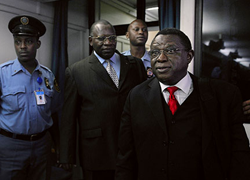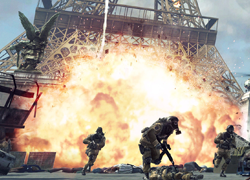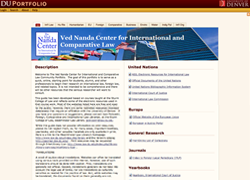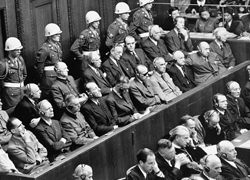More on the problematic sentencing at International Tribunals
Last Wednesday Judge Meron at the Rwanda International Criminal Tribunal lowered the sentence of the leader of Rwanda’s genocide. Here is a link to an article on the decision. Colonel Theoneste Bagosora was alleged to be the person who made the decision to commit genocide against the Tutsis and set about planning and preparing for … Read more










